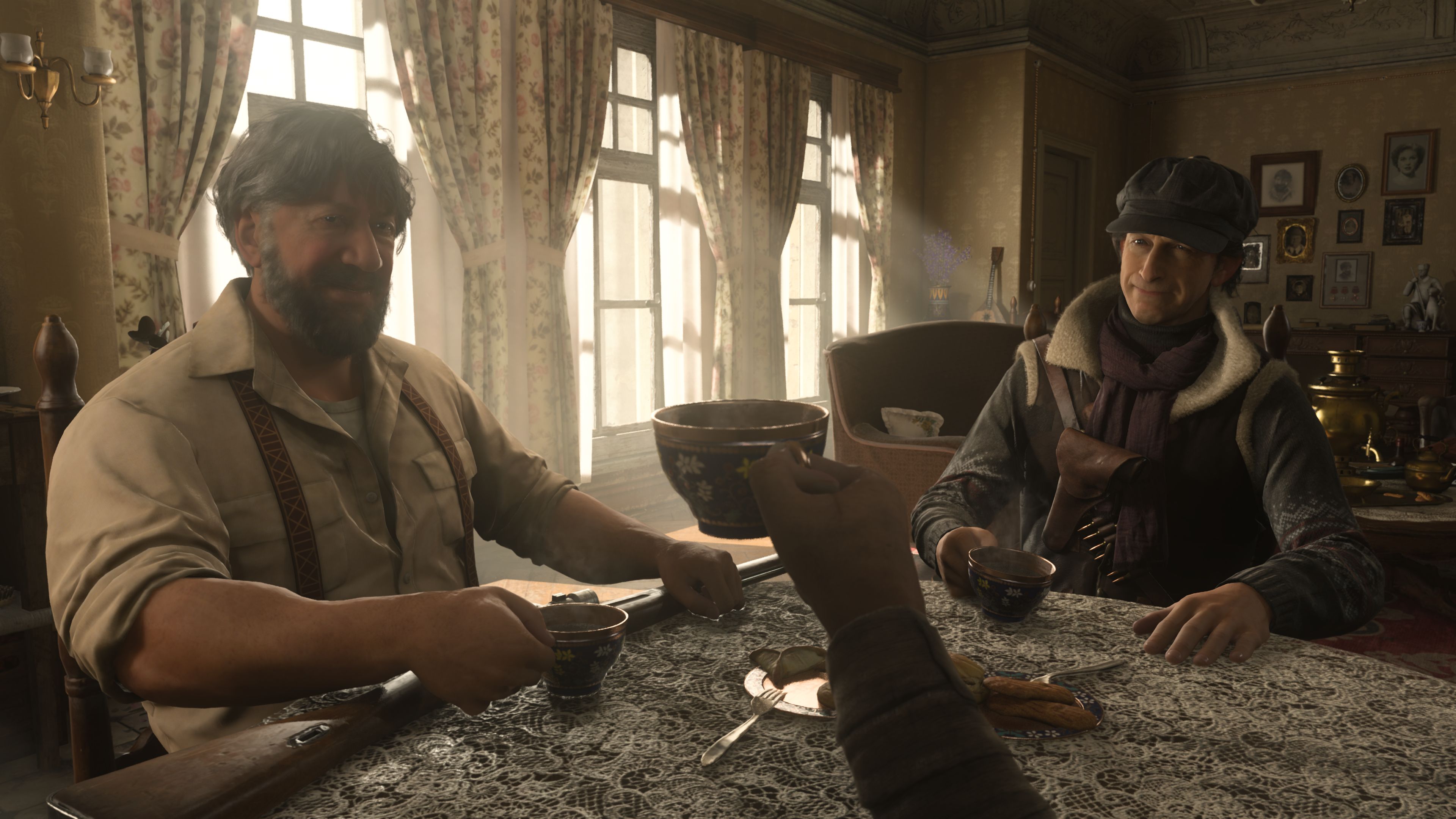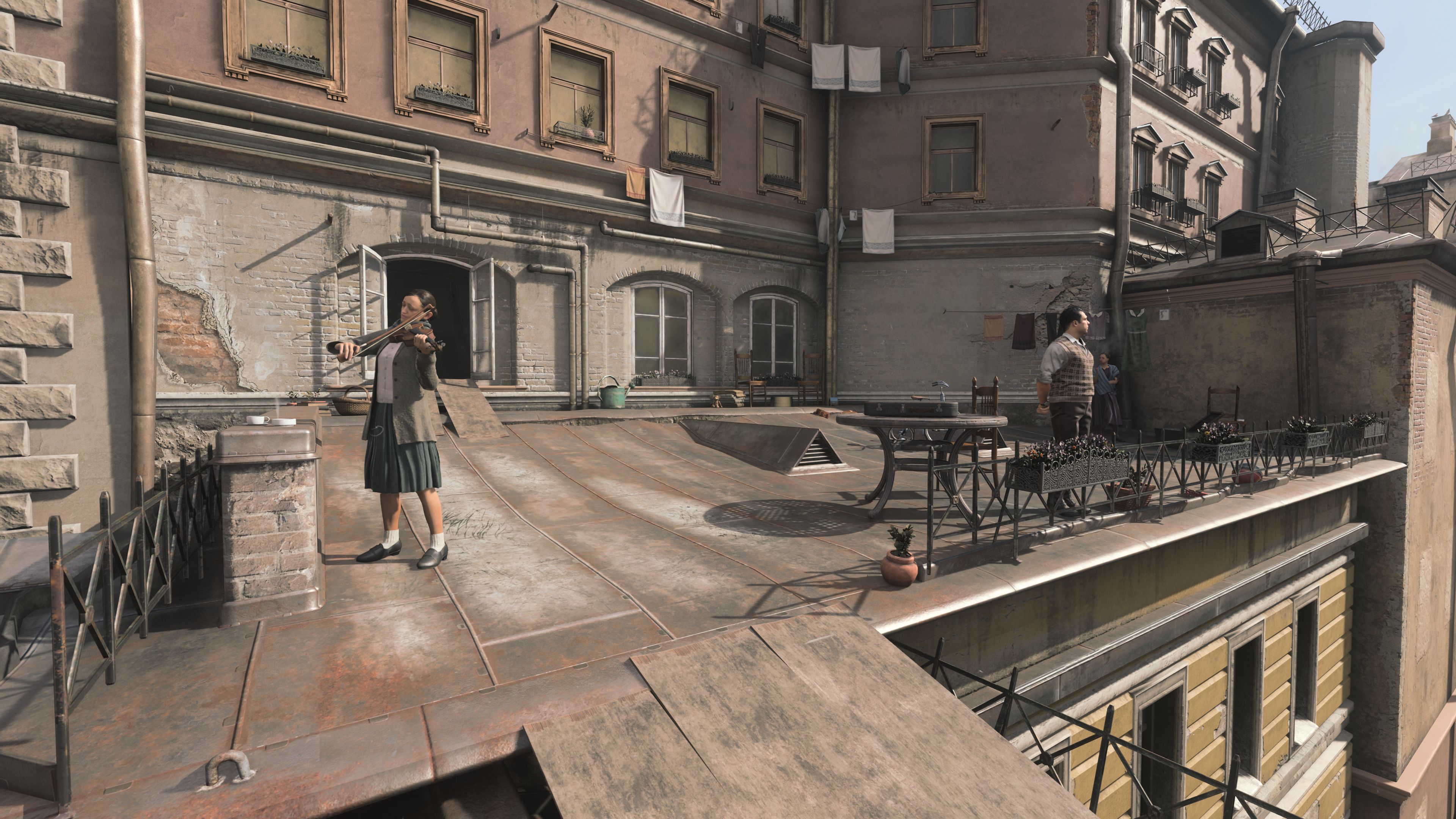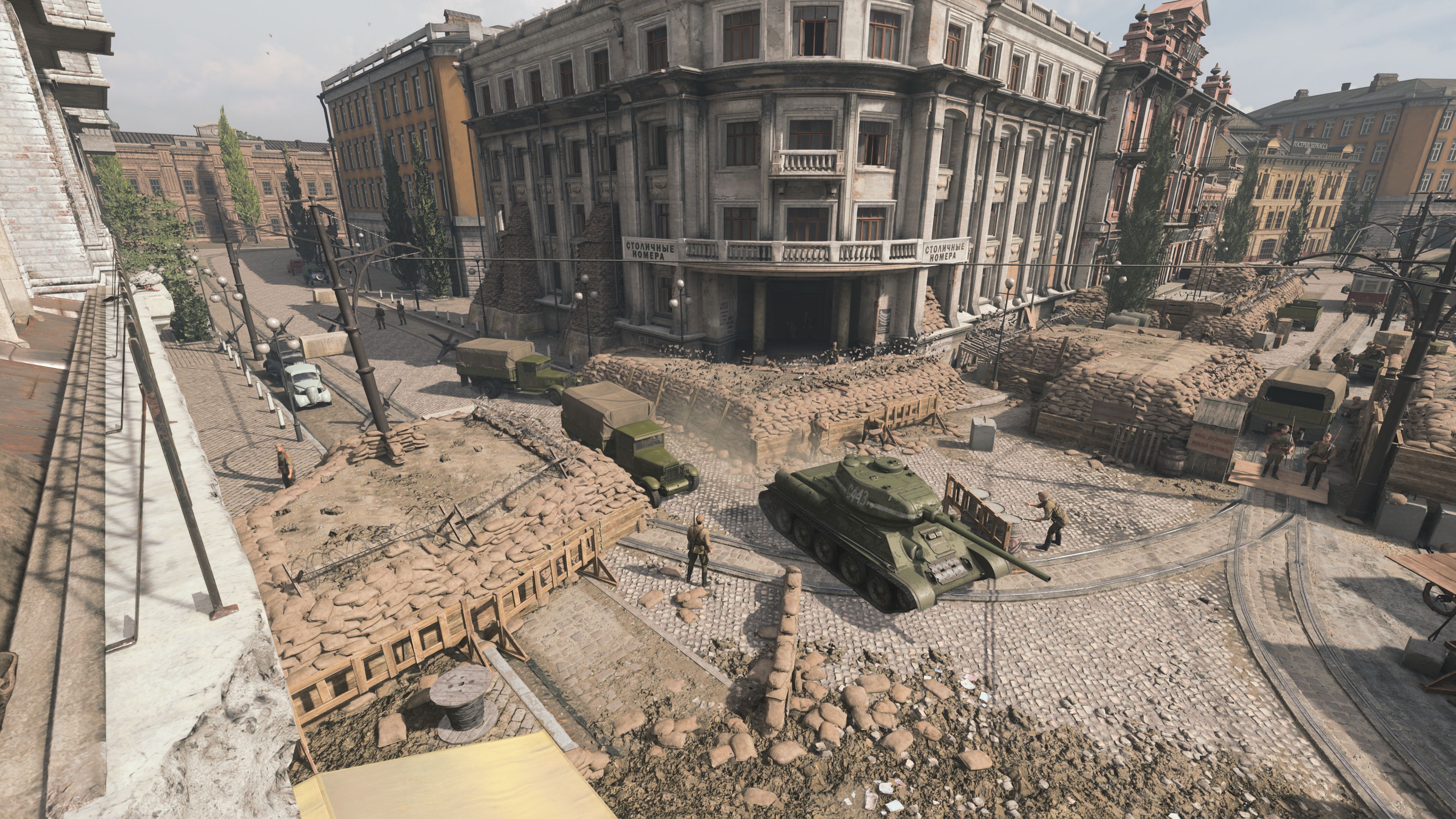
I'm about midway through the campaign in Call of Duty: Vanguard, and so far it's been a well-made but unadventurous foray through the various theatres of World War II. But one mission has stood out head and shoulders above the rest. Titled Stalingrad Summer, it sees you play as Russian sniper Polina Petrova in a very different take on World War II's bloodiest battle.
Stalingrad Summer doesn't begin with an icy crossing of the River Volga, or a nail-biting assault on Pavlov's House. Instead, it kicks off with a cup of coffee, quite possibly the best-looking cup of coffee I've ever seen in a videogame. Stalingrad Summer opens in the apartment of Polina's father, where they are joined for a quick brew by Polina's brother before she heads off to her deployment in the Red Army's medical corps.
The atmosphere is genial and domestic, as if the Wehrmacht were on the other side of the world rather than a few miles beyond the city's outskirts. The people of Stalingrad are confident in the Red Army's ability to fend off any attack, and so life carries on almost as normal. We get a better sense of that normality as Polina leaves the apartment, stepping outside to see the brightly coloured facades of the city buildings illuminated by the sun. Women hang out their washing to dry in tenement corridors, while a man futilely tries to push a brightly coloured sofa up a flight of stairs.
As someone who's only seen Stalingrad portrayed as a grey and rubble-strewn battlefield, it's striking to see the city lent such colour, to get a glimpse of (almost) everyday civilian life before the fight that turned the tide in the war. I've no idea how authentic Vanguard's portrayal of urban living in 1940s Russia is—I imagine it comes with a hefty dollop of artistic license. But the fact the game portrays the Russian people as people, given voices and distinctive personalities rather than treating them as cannon fodder for the Red Army's war machine, is significant in and of itself.
The game portrays the Russian people as people, given voices and distinctive personalities rather than treating them as cannon fodder for the Red Army's war machine
This representation doesn't feel like lip service either. For what little screen time they have, Polina's father and brother are likeable, empathetically drawn characters. And while it's clear what the mission's ultimate destination is from the moment the coffee is poured, Stalingrad Summer doesn't go straight for the jugular as earlier games in the series may have done.
Instead, Stalingrad Summer takes its time tearing down that which it has built. Things begin looking less rosy the moment Polina leaves the courtyard in front of her apartment. As she scrambles across the rooftops to get to her deployment, the pleasures of civilian life slowly fall away, replaced with disconcerting military order. We see columns of tanks snarling up the roads, elaborate fortifications being built from sandbags, and lines of military tents that stretch for hundreds of yards through Stalingrad's central square.
It's clear the engagement the Red Army is preparing for is much more significant that it seemed while sat at the coffee table, and the reality of what's to come begins to sink in. Yet when the fireworks finally erupt, it still comes as a shock. As Polina arrives at her deployment, Vanguard gives you a brief warning of the impending assault in the form of two sleek silhouettes in the sky, and then all hell breaks loose.
Keep up to date with the most important stories and the best deals, as picked by the PC Gamer team.
I won't go into detail about what happens in the latter part of Stalingrad Summer, but the moments after the Nazi assault begins are easily the most striking and affecting moments in the campaign so far, as the life Polina has known is ripped away in a handful of seconds. The mission that follows is a standard Call of Duty affair, but the time taken to build up both Stalingrad as a place and the people surrounding Polina lends an urgency and emotive drive to your actions that the campaign's more generic objectives elsewhere do not. It actually highlights the cost paid by the city on the Volga better than a lot of other fictitious portrayals about the battle.
It's been a while since Call of Duty made me care about the conflict it portrays, but Stalingrad Summer is a genuinely compelling bit of World War II drama. Indeed, part of me wishes the whole campaign focussed on Polina and her family, rather than bouncing around all over the place as is Call of Duty's wont. In any case, I'll be thinking about that cup of coffee for some time to come, and not just because it looked genuinely delicious.
Rick has been fascinated by PC gaming since he was seven years old, when he used to sneak into his dad's home office for covert sessions of Doom. He grew up on a diet of similarly unsuitable games, with favourites including Quake, Thief, Half-Life and Deus Ex. Between 2013 and 2022, Rick was games editor of Custom PC magazine and associated website bit-tech.net. But he's always kept one foot in freelance games journalism, writing for publications like Edge, Eurogamer, the Guardian and, naturally, PC Gamer. While he'll play anything that can be controlled with a keyboard and mouse, he has a particular passion for first-person shooters and immersive sims.



